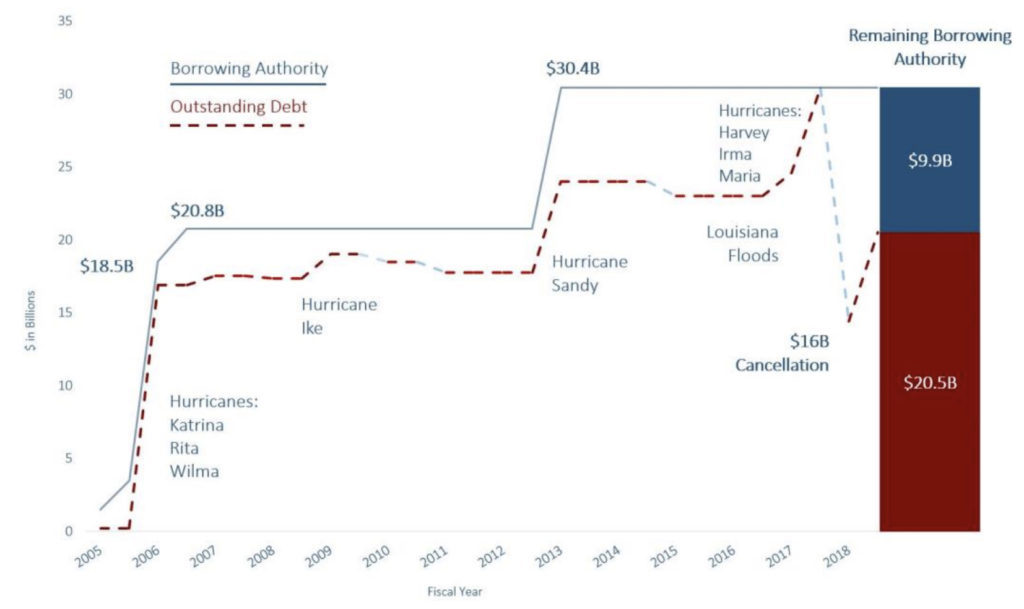America’s only major insurance coverage program for homeowners suffering flood damage is safe… for now. The Senate voted 86-12 on Tuesday to extend the National Flood Insurance Program (NFIP) for four months, mere hours before the program’s deadline for expiration.
“We applaud lawmakers for taking this needed action to prevent disruptions to closings in thousands of communities across the country,” said NAR President Elizabeth Mendenhall in a statement to Inman.
The National Association of Realtors (NAR) joined other trade organizations in July to fight for an extension to the NFIP in the interim. It’s also lobbied for reforms to program.
“Although the National Flood Insurance Program will be extended through November 30 when signed into law, the NFIP is in desperate need of reforms that will make it solvent and sustainable in the long term,” said Mendenhall. “The National Association of Realtors will continue fighting for these reforms as the next NFIP reauthorization discussions loom later this year.”
Last week, the House of Representatives passed the same extension, which calls for the program’s lapse to be pushed from July 31, 2018 to November 30, 2018 – the end of Atlantic hurricane season – by a 366-52 vote. It will head to President Donald Trump’s desk for signature.
The NFIP is a government program aimed at providing homeowners, business owners and renters with affordable flood insurance. It’s overseen by the Federal Emergency Management Agency (FEMA) and has been active since 1968.
3 steps to 'relist' that painful property that just won’t sell
Tom Ferry answers the question, 'Why isn’t my listing selling?' READ MORE
The NFIP is able to provide affordable insurance by encouraging communities to adopt and enforce floodplain management regulations, according to FEMA. Those efforts are able the further mitigate effects of flooding. Overall the program reduces the socio-economic impact of disasters by promoting the purchase and retention of insurance, FEMA says.
A first quarter of 2018 study from FEMA found that the average yearly insurance premium for participants is $707. The program has more than $20 billion in outstanding debt with the U.S. Treasury. After Trump outright cancelled $16 billion in debt in October, losses from Hurricanes Harvey, Irma and Maria drove the NFIP to borrow $11.9 billion from the U.S. Treasury.
“As currently designed, the program cannot repay this debt,” Roy E. Wright, the deputy associate administrator for insurance and mitigation said in the study.

Figures and graph courtesy FEMA
A study released by CoreLogic in May estimates that the 2018 hurricane season could cause up to $1.6 trillion in property damage.
The move is the latest in a series of renewals that have continuously punted a bipartisan long term solution on NFIP further down the road. Last June, a bipartisan reform was introduced by Democratic Senator Robert Menendez. The Sustainable, Affordable, Fair, and Efficient (SAFE) National Flood Insurance Program Reauthorization Act of 2017, would authorize NFIP for six years and put into place reforms aimed at making the NFIP more sustainable and insurance more affordable.
“Americans deserve a National Flood Insurance Program that is sustainable for taxpayers, affordable for homeowners, and accountable to everyone,” said Menendez in a release, at the time of the legislation introduction. “If we want a more sustainable system, the answer isn’t to slam homeowners with even higher premiums.
Menendez added, “This legislation puts the lessons we learned after Superstorm Sandy into action, levels the playing field for policyholders, and attacks the NFIP’s rampant waste and abuse to create real savings and greater investment in mitigation and resiliency efforts to make our residents and communities safer.”
Menendez’s bill – which is co-sponsored by three Republican and three Democratic senators, was referred to the Senate Committee on Banking, Housing, and Urban Affairs, where it has stayed since introduction on June 15, 2017.
As many as 2.4 million homes – worth nearly $1 trillion in property value – could be at risk of suffering chronic flooding, according to a study by the Union of Concerned Scientists (UCS).
“What’s striking as we look along our coasts is that the significant risks of sea level rise to properties identified in our study often aren’t reflected in current home values in coastal real estate markets,” said Rachel Cleetus, an economist and policy director for the Climate and Energy Program at UCS, as well as a report co-author. “Unfortunately, in the years ahead many coastal communities will face declining property values as risk perceptions catch up with reality.”
Experts also fear that constant flooding and the deterioration of home values associated with that flooding could cause the U.S. housing market to suffer a crash worse than 2007-2008 financial crisis.
Article image credited to Staff Sgt. Daniel J. Martinez for U.S. Air National Guard
Senate passes National Flood Insurance Program extension hours before it expires curated from Inman
Comments
Post a Comment